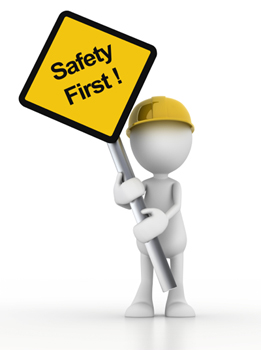 A construction company in Washington state faces stiff fines for "numerous repeated safety violations" that reportedly "exposed workers to potential falls and other hazards at a residential construction site." The Washington State Department of Labor & Industries slapped J&I Construction with fines resulting from multiple violations. Now the company owes more than $200,000.
A construction company in Washington state faces stiff fines for "numerous repeated safety violations" that reportedly "exposed workers to potential falls and other hazards at a residential construction site." The Washington State Department of Labor & Industries slapped J&I Construction with fines resulting from multiple violations. Now the company owes more than $200,000.
More from the Insurance Journal:
The three violations, each with a penalty of $42,000, were for not providing proper fall protection to three employees who were working on the top edge of a wall nearly 20 feet off the ground, and the company has been cited two other times for the same issue, according to L&I.
J & I was also cited for three repeat violations for not having a plan outlining the fall hazards on the specific job, exposing workers to unguarded wall openings that they could fall through and for not ensuring that workers didn’t stand or step on the top of a self-supporting ladder. Each violation carries a penalty of $21,000.
The company was cited for two additional repeat violations for not having railings on open-sided stairs to protect employees from falls ($5,600), and for not ensuring that employees wore hard hats where there was a danger of flying or falling objects ($4,200). They were also cited for not having safety springs on nail guns to protect against accidental discharges ($2,800).
That company can appeal the fines and must do so within 15 days.
Back here in Texas, there are many construction firms taking a proactive approach – not only to safety but craft training as well.
The Construction Career Collaborative, headed up by Executive Director Chuck Gremillion is working to make safety training readily available and routine for companies that want to do the right thing.
“We’re really a pretty simple organization,” Gremillion said during an industry breakfast late last year. “We want to attract young people to a career.”
While the vast majority of construction companies understand the need for safety training, which is a great thing, Gremillion said it is regrettable there aren’t more firms with a focus on craft training.
It is commonplace for construction companies to have a safety training director but not a craft training director, he said. “This is our biggest challenge of all,” Gremillion said. “For many of our trades, craft training does not exist,” he said, adding that “a vision for the future of the industry begins with craft training.”
Find out more about the Construction Career Collaborative, or C3, by checking out their website. While you’re there, be sure to sign up for their free newsletter.


